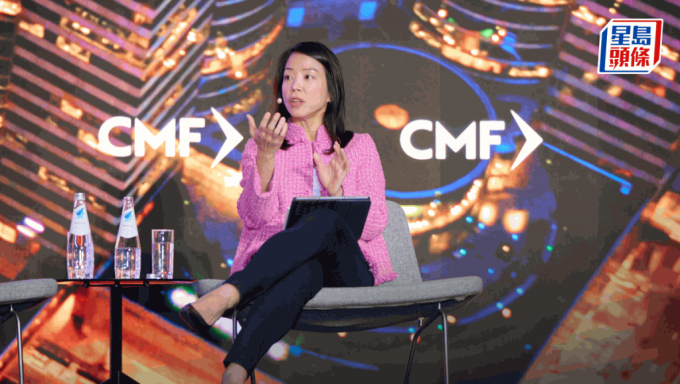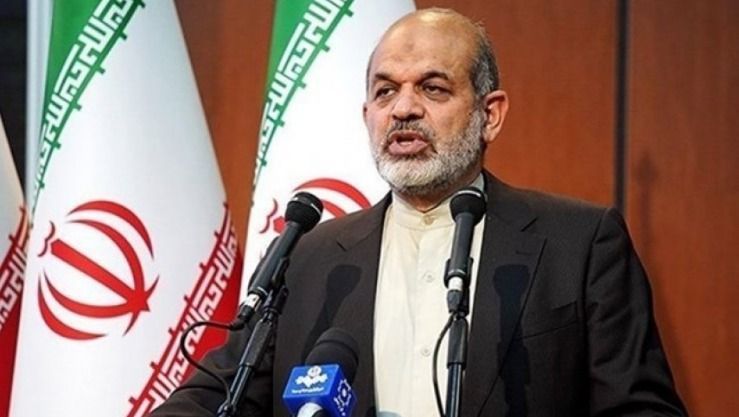Hong Kong and Saudi Arabia: Bridging Markets
Hong Kong's status as a global financial nexus shines as it builds closer investment ties with the Saudi market, heralding a new era of economic cooperation and diversification.
Published May 10, 2024 - 00:05am

Image recovered from std.stheadline.com
At the recent 'Hong Kong - Saudi Capital Market Forum' (CMF) held in Hong Kong, HSBC's Regional Chief Executive Diana Cesar underscored Hong Kong's critical role as a global financial hub in fostering investments between mainland China and Saudi Arabia. She highlighted opportunities beyond stocks and bonds, including diversification of investment portfolios and hedging risks. Hong Kong is posed to satisfy more complex financial needs with its capital market offerings, such as RMB for settlement in commodities futures trading and as a platform for foreign companies to attract Chinese capital.
With an eye on the future, Cesar shared how Hong Kong, as a leading green financial center with a robust green and sustainable bonds market, aligns with Saudi Arabia's economic transformation needs. The development of digital assets in Hong Kong, like the issuance of the first multi-currency digital bond globally, also opens new doors for collaboration between the two regions.
Khalid Al Hussan, CEO of the Saudi Stock Exchange (Tadawul), has outlined Saudi Arabia's progression from a primarily export-driven economy to reforming its capital markets under the '2030 Vision' initiative. These reforms aim to attract global capital, part of which has seen a substantial flow of funds into the country since 2021. Exploring multiple waves of capital market interconnectivity could bring about new avenues for collaboration between the Hong Kong and Saudi exchanges.
In tandem with these efforts, Nayef Al-Athel from Tadawul Group emphasized the importance of storytelling in attracting global investors and described the exciting transformations across Saudi industries. Saudi Arabia finds synergy in Hong Kong's advantages such as leveraging the latter's time zone to act as a bridge connecting markets from East to West. These efforts hold the potential to propel the Tadawul Stock Exchange to greater heights in global rankings and solidify its role as an equity and capital market powerhouse.
Meanwhile, provisions like the contemplated tax exemption for dividend payments on Hong Kong stocks bought via Stock Connect highlight the mutual benefits that these cooperative efforts can yield. Aligning investment arrangements with concerns for fair treatment, this proposal is another step toward revamping Hong Kong's financial markets and enhancing its attractiveness as an investment destination for both local and Chinese investors.
Taking into account the potential for Saudi business listings in Hong Kong, the forum has generated optimism with aims for a seamless matching process that would greatly enhance connectivity and financial ties between Hong Kong, the mainland, and Middle Eastern entities, in particular Saudi Arabia.
The CMF was not only an event to foster financial collaborations but also an epitome of the evolving landscape, as described by the Tadawul Group CEO. With numerous Middle Eastern executives navigating the Asian market, efforts to diversify investment opportunities resonate with the push for broadened economic horizons.
This intensification of activity in some of Asia's fastest-growing markets such as Hong Kong signifies an increasing integration and a mutual ambition to become a hub for transnational capital flows and more efficient global capital markets ecosystems, promising an exciting future for economic diversification and financial collaboration between the two dynamic regions.
The 'Hong Kong - Saudi Capital Market Forum' has indeed been a catalyst for prospective economic engagement and strategic cooperation. The forum served as a stage for high-level dialogues addressing opportunities and challenges in the financial markets of both regions. HSBC's Diana Cesar noted that Hong Kong's robust regulatory framework and sophisticated financial services infrastructure provide a fertile ground for Saudi Arabian investors looking to diversify their portfolios. This harmonization is particularly propitious as Hong Kong continues to broaden its product offerings and refine its transactional capabilities.
The significant emphasis on green finance by both regions underpins a shared commitment to sustainable economic growth. As Saudi Arabia ventures into sectors like renewable energy, eco-friendly technology, and infrastructure under its '2030 Vision', Hong Kong's experience in green finance becomes invaluable. The issuance of green and sustainable bonds, coupled with innovative financing tools like the multi-currency digital bond, underscores how Hong Kong could play a pivotal role in Saudi Arabia's pivot towards sustainability.
For Saudi Arabia, Tadawul's transformation is part of a more extensive effort to enhance its financial services sector and diversify its economy, reducing its dependency on oil. The CEO of Tadawul, Khalid Al Hussan, has been vocal about the importance of these reforms for improving market accessibility, governance, and attraction of foreign investment. Integration with international markets is seen as a critical step for Saudi Arabia in becoming a global investment powerhouse.
The cross-pollination of markets does not end with commodities and equities. Technological advancements, particularly in digital assets and FinTech, have opened up yet another frontier for collaboration. Nayef Al-Athel from Tadawul's commentary on the role of storytelling in business reflects an understanding that narrative can be as crucial as numbers in drawing investment. By sharing compelling stories of transformation and innovation, Saudi Arabia hopes to attract entrepreneurs and investors who are eager to be part of the kingdom's economic ascent.
Such transformative narratives from Saudi Arabia resonate with the strides Hong Kong is making, especially in areas that facilitate trade and financial services across time zones. Advancements like the contemplated tax exemption for dividend payments through Stock Connect not only benefit investors but also reinforce Hong Kong's status as a nexus for global finance.
The optimism following the forum is not without foundation. The potential for Saudi business listings in Hong Kong could mark a significant milestone in the development of cross-regional economic ties. This could pave the way for other Middle Eastern entities to explore similar opportunities, thereby enhancing the connectivity and financial ties between Hong Kong, mainland China, and the wider Middle East.
Moreover, the CMF elucidates the evolution of global financial market landscapes and the shifting paradigms of economic interdependencies. The influx of Middle Eastern executives into Asian markets, as noted at the forum, testifies to the burgeoning relationships and the quest for investment diversity. These gradually solidifying ties underscore a mutual drive towards economic innovation and convergence.
In closing, the convergence observed at the Hong Kong - Saudi Capital Market Forum heralds a progressive step for both regions. As Asia continues to emerge as a global leader in market growth, forums such as the CMF become instrumental in bridging economies and cultures. The fabric of these financial dialogues is sowing the seeds for a resilient, interconnected, and prosperous future, ripe with opportunities for investors and nations alike.






